Strategic Plan 2023-2030



Ivan Allen College of Liberal Arts (IAC) stands apart as a liberal arts college integral to a very highly research active university in science and engineering, situated in one of the nation’s most dynamic and diverse cities. Home to the humanities, arts, and social sciences at Georgia Tech, IAC demonstrates the essential value of a liberal arts education, as we offer creative human-centered solutions to the most complex questions of our time. We are integrating our programs ever more deliberately with technology and science, enhancing them with global and cultural understanding and a social justice imperative to improve the human condition.
Students, staff, and faculty in our academic schools, research centers and labs, and Reserve Officers’ Training Corps programs show the courage worthy of the namesake of our College, Ivan Allen Jr., who was a transformative mayor of Atlanta in the 1960s. That drive is at the heart of our curriculum, research, and community engagement. As problem seekers and problem solvers, we accept the challenge to create a more equitable, diverse, and inclusive culture to better our community’s health, safety, and well-being.
Since 2015, we have more than doubled the size of enrollments, bucking national trends in the humanities and social sciences.
IAC’s forward momentum is driven by an interdisciplinary learning environment, connecting us to one another in our College, to our colleagues at Georgia Tech, and to local, regional, national, and global communities. Based on a strong sense of belonging, we strive for positive change in our environment, community health, and national security. As we continue to develop foundations for lifelong learning through our curriculum, research labs, and mentoring programs, we are excited to see the positive impact our talented students make at Georgia Tech and beyond.
Our strategic plan is designed to answer the question: What should be the purpose and potential of a liberal arts college at a technology-focused university in the 21st century? After collecting input from numerous constituencies, we agreed on five goals.
(1) Design Transformative Learning Experiences and Opportunities, redefining liberal arts education by investing in high-impact instruction, expanding access, and creating interdisciplinary experiences that produce graduates well-equipped for a variety of career pathways, thereby accelerating their social and economic mobility.
(2) Champion Impactful Research and Scholarship, building a rigorous research portfolio with a distinctive focus on the intersection of humanities, arts, social sciences, and STEM.
(3) Collaborate and Engage with Diverse Communities, applying unique knowledge and skills to engage communities and our alumni through mutually beneficial partnerships.
(4) Promote a Healthy College Climate and Culture, creating a healthy, productive work and educational environment anchored in our commitment to justice, equity, diversity, inclusion, access, and well-being.

(5) Build Sustainable Resource Capacity, elevating the College’s profile, achieving operational excellence, and supporting the success of our community by identifying and acquiring resources and building systematic infrastructure. These goals offer forward momentum to the Ivan Allen College of Liberal Arts at Georgia Tech.
Sincerely,
Kaye Husbands Fealing, Ph.D. Dean and Ivan Allen Jr. Chair Ivan Allen College of Liberal Arts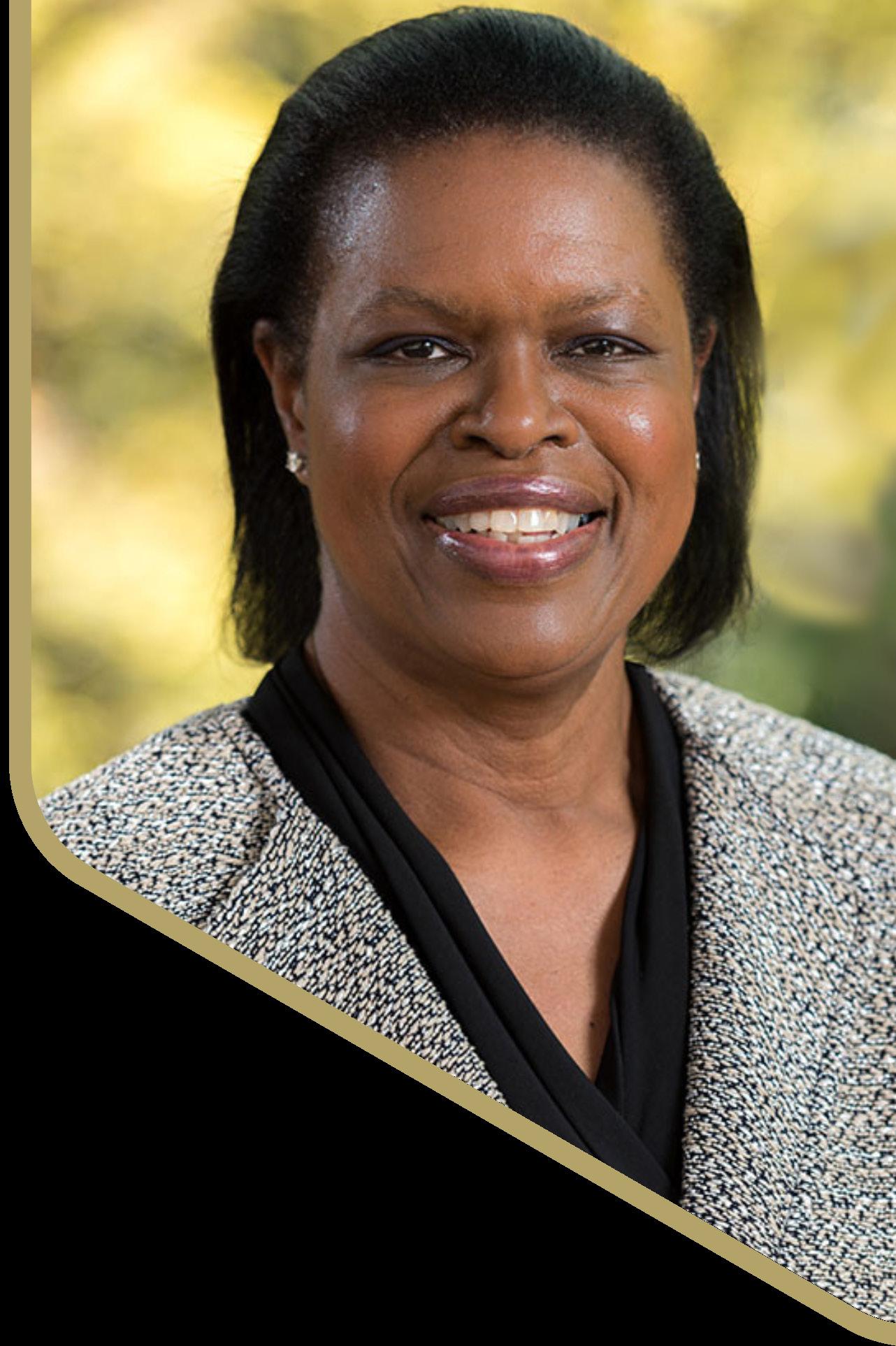
We design effective solutions to global challenges, ensuring technological advances that benefit humanity, through collaboration with a broad spectrum of fields and sectors.
We advance access to diverse racial groups, ethnicities, genders, regions, perspectives, and experiences, striving for fair processes and outcomes.
We engage with communities and share our expertise, helping to improve the human condition under adverse conditions.
We listen with intention and empathy, fostering the freedom to be creative, innovative, and bold.
We nurture the health and well-being of members of our community, keeping at the forefront of mind that studen
Ivan Allen College of Liberal Arts pioneers next-generation, technology-informed research, education, and community engagement in the humanities, arts, and social sciences to build a more creative and equitable society.

Ivan Allen College of Liberal Arts develops globally aware a culturally minded critical thinkers and leaders who employ creativity and technology to address emerging social, econo and institutional challenges.
Founded in 1990, inspired by the legacy of Ivan Allen Jr., former mayor of Atlanta and Georgia Tech alumnus, the Ivan Allen College of Liberal Arts includes:
6
3
Academic Schools (Economics; History and Sociology; Sam Nunn School of International Affairs; Literature, Media, and Communication; Modern Languages; Public Policy)
Reserve Officersʼ Training Corps (Air Force, Army, Navy)
18
1
Research center (Center for Advanced Communications Policy)
Faculty-led research centers and laboratories
Ivan Allen College of Liberal Arts has more than 1,100 undergraduate majors, more than 900 students enrolled in our minors, and more than 800 graduate students. Importantly, we engage, instruct, serve, and support students across all disciplines at Georgia Tech.

24 34
30 Minors Undergraduate and graduate certificate programs
Degree programs
10
Bachelor of Science degrees
Master of Science degrees including six five-year bachelor/ masterʼs programs Doctoral degrees
14 6
Ivan Allen College of Liberal Arts (IAC) provides innovative, human-centered perspectives at the intersections of humanities, social sciences, arts, and STEM, developing leaders who advance technology and improve the human condition. English, economics, film and media studies, history, political science, public policy, philosophy, ethics, sociology, and several languages are all key disciplines that are the mainstay of our College.
In addition, our 12 focus areas include computational social science; digital humanities; energy, environment and sustainability; ethics and emerging technologies; gender and women’s studies; global development; global history, languages, and cultures; health analytics; media studies; policy and governance; national and international security; and social justice. We enrich knowledge-making enterprises and encourage ethical principles in our engagements with a broad variety of communities.
Our programs encompass traditional fields as well as unique and professional disciplines. Enterprising activities in our College include the School of Economics’ health analytics lab and groundbreaking work on poverty; the School of History and Sociology’s focus on social justice and technology, and the nexus of sports, society and technology; the School of Literature, Media, and Communication’s digital media labs and creative arts and film showcases; the School of Modern Languages’ Language for Business and Technology study abroad programs that provide students with unique opportunities to develop a global perspective regarding their target languages and culture that students can apply to other Georgia Tech coursework and their individual career goals; the Sam Nunn School of International Affairs’ comparative and interdisciplinary programs to address issues at the nexus of emerging technologies and
global development, international security, and international governance, and home to eight Distinguished Professors of Practice, including its namesake, the Honorable Sam Nunn; the School of Public Policy’s focus on science and technology policy and collaboration with computing and engineering on cybersecurity policy, degrees in sustainability management, and the Law, Science, and Technology minor; and four of our ROTC officers being the first students from Georgia Tech to be directly commissioned into the United States Space Force. With more than a dozen centers, research in the Ivan Allen College is multidisciplinary and serves as a driving force to fuel new ideas and uncover the answers that will positively impact our communities here in Atlanta and around the world.
IAC employs approximately 350 tenured, tenure-track, non-tenure-track academic faculty, and research faculty who prepare students to be leaders capable of balancing a richly defined base of expertise with a well-grounded sense of responsibility. Many of our faculty engage in ground-breaking, interdisciplinary research to address complex issues facing the world. Our distinguished faculty honors include fellows of the American Association for the Advancement of Science, a fellow of the National Academy of Sciences and National Academy of Engineering, a fellow of the National Academy of Public Administration, a fellow of the American Academy of Arts and Sciences, a Fulbright Scholar, a National Book Award finalist, and Regents’ Professors, Regents’ Researchers and an inaugural Regents’ Entrepreneur.
IAC also employs approximately 65 staff members, who are essential contributors to achieve and support our academic, research, and outreach missions. Many of our staff have earned professional certifications to
complement their exceptional knowledge, skills, and abilities. Our engaged staff received awards and honors such as the National Advisor of the Year, Georgia Tech Staff Excellence Award, Spirit of Georgia Tech Awards, Georgia Tech Creating the Next Award, and Service to the Community Awards. Staff also serve on Institute, community, and national committees, associations, and task forces to advocate for change, network with peers, represent our college, and develop effective practices.
What makes us unique? Many of our faculty members have bachelor’s, master’s, and doctoral STEM degrees. All IAC majors graduate with a Bachelor of Science, meaning our students complete STEM courses not required of similar majors in other institutions. Many majors and minors in IAC include classes where humanities, arts, social sciences, and STEM are intertwined, and degree programs that are STEM-certified by the United States Department of Education. Students who take courses or graduate from IAC are not just prepared to enter the workforce; they are equipped with a global perspective that will inform the decisions they make in their careers. It is the College’s mission to educate students for a more connected, diverse world.

Innovation cannot happen without creative minds who approach solutions with a focus on the human condition. Our students and faculty demonstrate transformative action in their scholarship, research, and academic studies. We are more than problem solvers. We seek out the kind of problems that foster transformative ideas such as our public policy professors leading research on the impact of artificial intelligence, students working on projects to improve environmental conditions in coastal communities and advance sustainability, and a media scholar merging digital media with hip hop to preserve the art form.
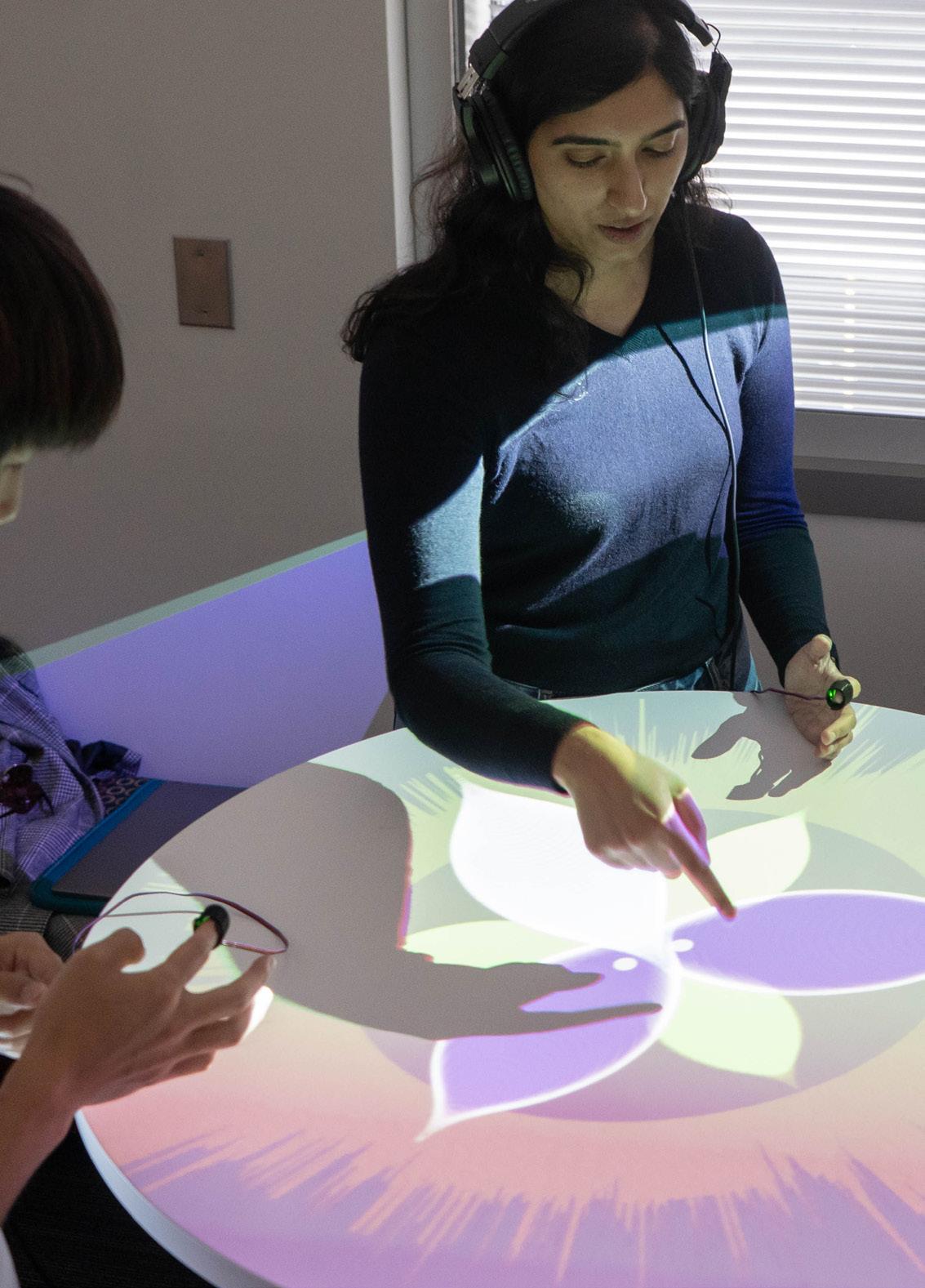
What should be the purpose and potential of a liberal arts college at a technology-focused university in the 21st century?
Redefine liberal arts education by investing in high-impact instruction, expanding access, and creating interdisciplinary experiences that produce graduates well-equipped for a variety of career pathways, thereby accelerating their social and economic mobility.
Strategic Focus Areas: Amplify Impact. Connect Globally. Expand Access.
Values: Students are our top priority. We strive for excellence. We celebrate collaboration. We champion innovation.
Serving as the human-centered College within a technology-focused institution provides us with a unique perspective and an opportunity to offer an educational experience that prepares graduates for both the needs of today and the challenges of tomorrow. Redefining the humanities, arts, and social sciences curricula in a relevant and impactful way is imperative for the advancement of the individual and society in the global technological age. We will amplify our impact, connect globally, and expand access by attracting the highest-caliber, diverse students from Georgia, across the nation, and around the world. We prepare globally aware graduates and leaders skilled in STEM who are also persuasive writers, storytellers, visual artists, and keen observers of cultures.
• Enhance and expand curricular offerings, ensuring access to all Georgia Tech students and demonstrating our innovative thought leadership and scholarship.
• Engage students in real-world experiences that advance the public interest through education, knowledge production, community engagement, policy development and advocacy, and economic development.
• Promote creative thinking through innovative teaching practices, educational technologies, and instructional delivery.
• Improve undergraduate and graduate student recruitment, retention, and support to grow a more diverse student body and provide services equitably to all populations.
Georgia Tech Strategic Plan AlignmentBuild a rigorous research portfolio with a distinctive focus on the intersection of humanities, arts, social sciences, and STEM.
Strategic Focus Areas: Amplify Impact. Champion Innovation. Expand Access.
Values: Students are our top priority. We strive for excellence. We celebrate collaboration. We champion innovation.
We will champion innovation by redesigning the future of the liberal arts for an increasingly technological world. We will bring a vital and unique combination of humanistic, computational social science, scientific, and technological skills to solve complex problems. Through scholarship, education, and community engagement, we will create courageous change for social good locally, nationally, and globally. We will be a significant contributor to creating spaces and experiences that connect all forms of arts with science, technology, engineering, and math. We will innovate multiple pathways that enrich individual future leaders and intellectual leadership.
• Establish research as a hallmark, with our collective expertise earning national and international recognition, placing us among the top social sciences and humanities programs.

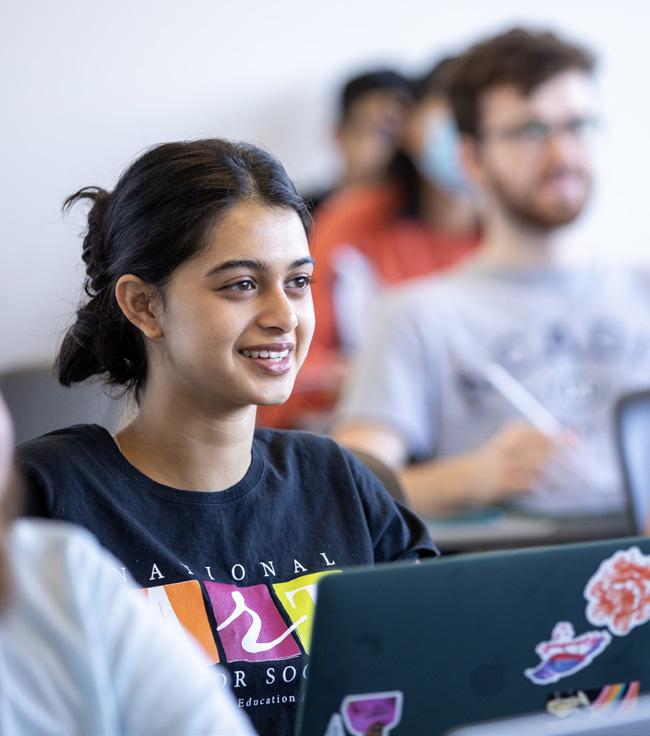
• Increase and enhance communication of research successes, opportunities, and collaborations to internal and external audiences.
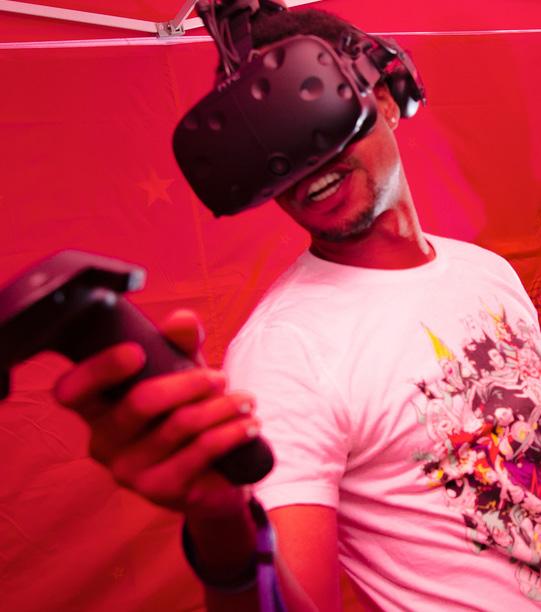
• Encourage, support, and reward interdisciplinary research within the College, across Georgia Tech and beyond.
• Diversify the portfolio of sponsored research and philanthropic foundation funding.

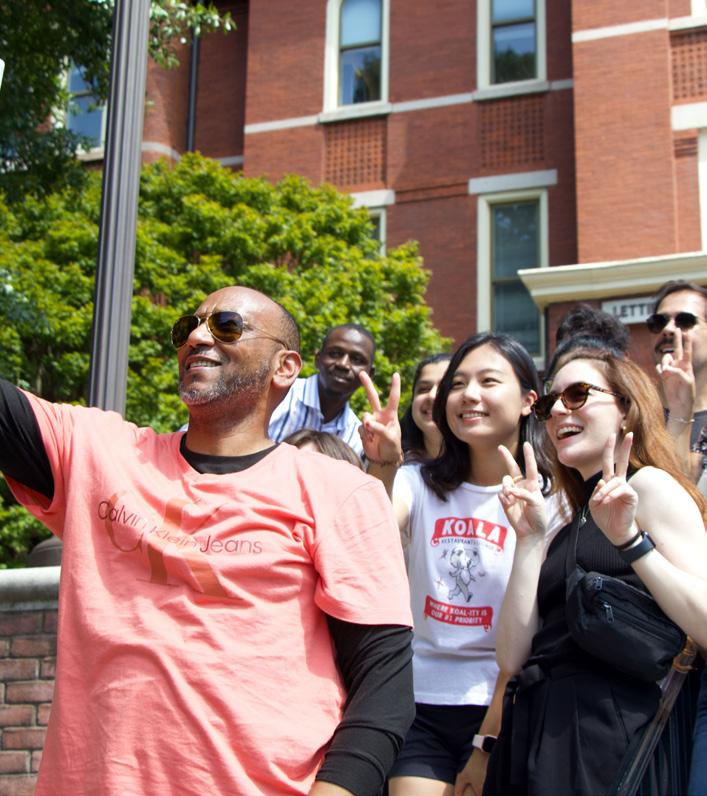
Apply unique knowledge and skills to engage communities and our alumni through mutually beneficial partnerships.
Strategic Focus Areas: Amplify Impact. Expand Access. Connect Globally. Lead by Example.
Values: We thrive on diversity. We celebrate collaboration.
We will lead by example by championing excellence in communication, critical thinking, collaborative activity, ethics, and cultural competency. Students will find deeper life purpose as they apply the knowledge they gain through our teaching and research experiences. We will contribute to well-being on a global scale by developing effective solutions to complex human challenges, aligning with the United Nations Sustainable Development Goals. We will make a measurable positive impact on local and global communities by serving as a respectful and reciprocal partner. By providing social, historical, and holistic context, our student-centered experiences and faculty-driven research will lead in identifying and solving problems.
• Engage students, faculty, and staff to resolve the pressing and persistent issues facing communities, particularly our local community.
• Launch community engaged interdisciplinary research centers.

• Accelerate opportunities for global engagements for our students, staff, and faculty.
• Cultivate alumni relationships to increase engagement and participation.
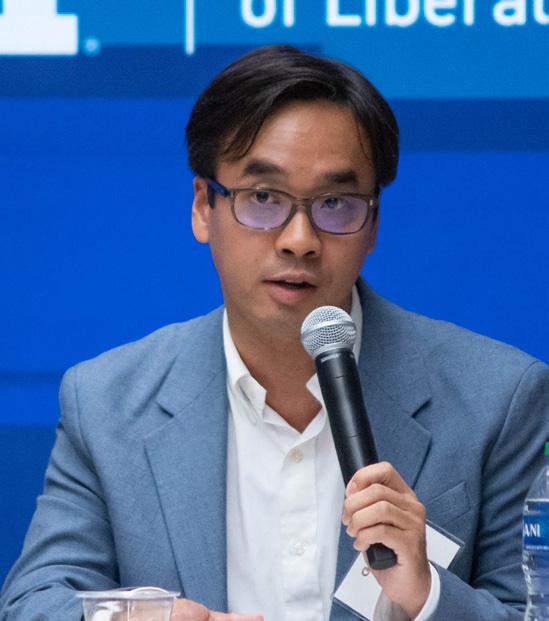
Create a healthy, productive work and educational environment anchored in our commitment to justice, equity, diversity, inclusion, access, and well-being.

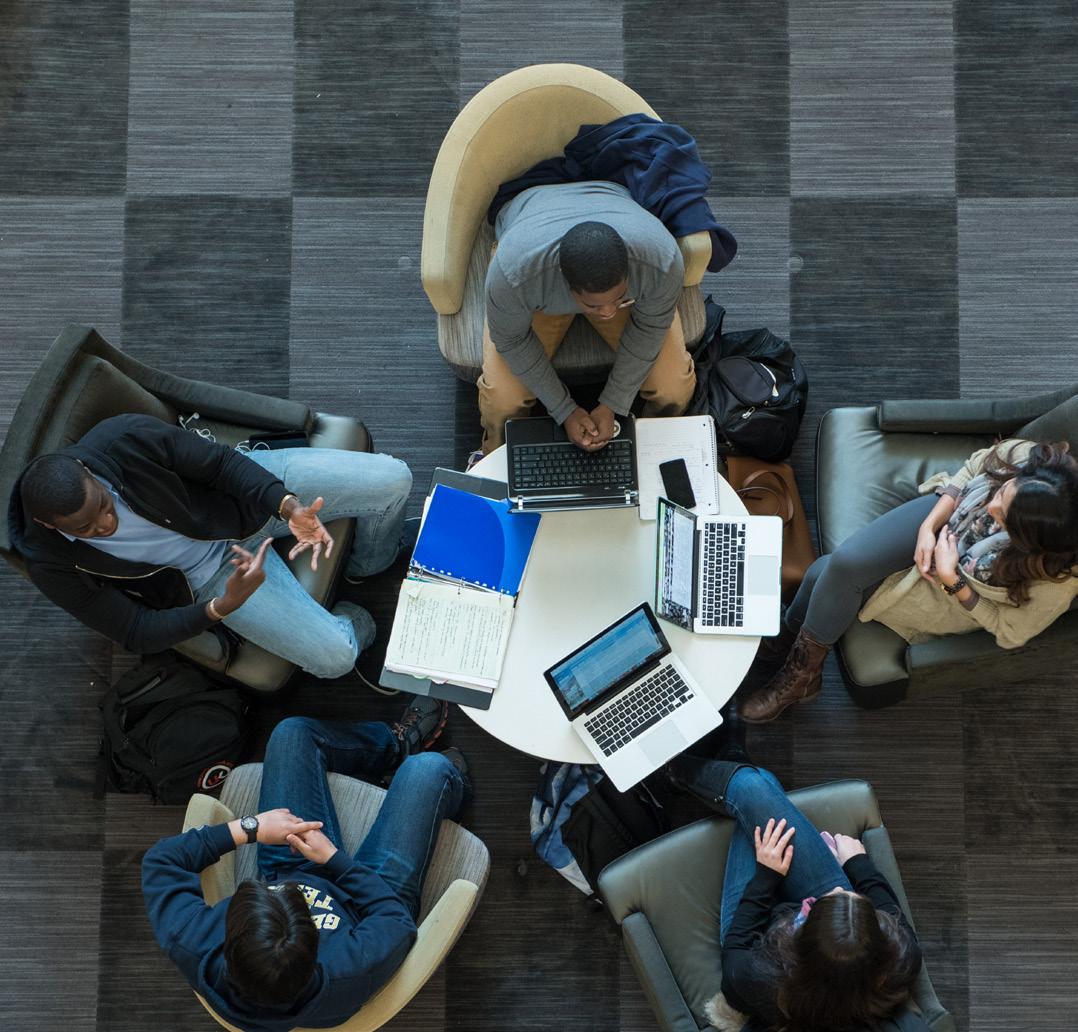
We will cultivate well-being by serving as a model for justice, equity, diversity, access, and inclusion in our practices and our community engagement. Ivan Allen College of Liberal Arts will be an important contributor to eliminating structural inequalities — helping students, faculty, and staff to thrive, which will also expand access.
Georgia Tech Strategic Plan Alignment
Strategic Focus Areas: Cultivate WellBeing. Expand Access. Lead by Example.
Values: We thrive on diversity. We safeguard freedom of inquiry and expression. We nurture the well-being of our community.
• Reaffirm and show how diversity, equity, inclusion, and access are in the foundation and soul of Ivan Allen College of Liberal Arts.
• Implement evidence-based practices and processes that measurably improve the health and well-being of our community.
• Identify and support effective professional development practices for students, faculty, and staff.
• Execute strategies to improve student and employee engagement.
Elevate the College’s profile, achieve operational excellence, and support the success of our community by identifying and acquiring resources and building systematic infrastructure.

We will invest in growth of enrollments and the number of students taught, with commensurate investments in the necessary faculty and staff to ensure high-quality teaching, creativity, and experiences for all members of our College community. Ivan Allen College of Liberal Arts will garner resources that enable our faculty and staff to thrive in a growth environment, deepen our commitments to our students and the public, and elevate our stature as we mindfully strive for administrative excellence.
Strategic Focus Areas: Amplify Impact. Champion Innovation. Lead by Example.
Values: We strive for excellence. We celebrate collaboration. We champion innovation. We act ethically. We are responsible stewards.
• Attract, develop, support, and retain faculty and staff.
• Create a robust, data-informed, and community-engaged process to garner corporate, philanthropic, and alumni support.
• Refresh and communicate our brand and distinctive identity to elevate the College’s profile within Georgia Tech and externally.
Acquire resources and establish infrastructure to support growth, effectiveness, and efficiency.
Ivan Allen College of Liberal Arts’ Strategic Planning Study Committee, composed of 17 members representing all units, classifications, and ranks, was appointed by Dean Kaye Husbands Fealing in October 2020. The Committee was charged to study the question:

“What should be the purpose and potential of a liberal arts college at a technology-focused university in the 21st century?”
The Strategic Planning Study Committee hosted a virtual speaker series to discuss unifying purposes and specific possibilities of a liberal arts college in an institutional setting such as Georgia Tech. The study committee invited Georgia Tech academic and research administrators, external academic and research administrators, foundations, community partners, students, and alumni to participate as panelists.
The Strategic Planning Study Committee conducted a six-month investigation and reported findings, conclusions, and recommendations. In consideration of the College’s vast scope, committee members were assigned to serve on two of seven sub-committees: Curriculum; Co-Curricular Activities; Diversity, Equity, Inclusion and Well-being; Funding and Development; Community Impact and Outreach; Leadership and Professional Development; and Research.
After the Strategic Planning Study Committee presented its findings, recommendations, and conclusions, the project team created the strategic plan. The College also secured the services of Marts&Lundy Communications to articulate our strengths, distinction, aspirations, and value proposition to advance Georgia Tech’s mission; launch a storytelling initiative that profiles students, faculty, alumni, and donors; and highlight the ongoing relevance of a liberal arts foundation and connections to technical disciplines in today’s ever-changing world.
An inclusive process to garner feedback, input, and buy-in of the strategic plan involved various stakeholders including the Strategic Planning Study Committee, College Advisory Board, Undergraduate Student Advisory Board, Graduate Student Advisory Board, School and Department chairs, Institute executive leadership, and more. The project team refined the strategic plan to ensure that it reflected collective aspirations of students, staff, academic faculty, research faculty, administrators, external advisors, and alumni.
• Alok Amatya, Marion L. Brittain Postdoctoral Fellow, School of Literature, Media, and Communication
• Michael Best, Professor, Sam Nunn School of International Affairs
• André Brock, Associate Professor, School of Literature, Media, and Communication
• Lelia Glass, Assistant Professor, School of Modern Languages
• Robert Hampson, Administrative Manager, School of History and Sociology
• Steve Hodges, Director of Information Technology, Ivan Allen College of Liberal Arts
• Alyssa Horace, Undergraduate Student, Sam Nunn School of International Affairs
• Dina Khapaeva, Professor, School of Modern Languages
• Aaron Levine, Associate Dean for Research & Outreach, Ivan Allen College of Liberal Arts and Associate Professor, School of Public Policy
• Daniel Marchetto, Ph.D. Student, School of Public Policy
• Nathan Moon, Principal Research Scientist, Center for Advanced Communications Policy
• Jennifer Singh, Associate Professor, School of History and Sociology
• Aselia Urmanbetova, Academic Professional, School of Economics
• KeAndré Williams, Undergraduate Student, School of Economics
• LTC Clifford Woodburn, Officer-in-Charge and Professor of the Practice, ROTC Army
Executive Sponsor
• Kaye Husbands Fealing, Dean and Ivan Allen Jr. Chair, Ivan Allen College of Liberal Arts
Study Committee Co-Chairs
• Shatakshee Dhongde, Associate Dean for Academic Affairs, Ivan Allen College of Liberal Arts and Associate Professor, School of Economics
• Melissa Ianetta, Class of 1958 Professor of Communication and Executive Director of the Writing and Communication Program, School of Literature, Media, and Communication
• Will Jimerson, College Administrative Officer, Ivan Allen College of Liberal Arts
• Richard Utz, Senior Associate Dean, Ivan Allen College of Liberal Arts and Professor, School of Literature, Media, and Communication
Consultants
• Sonia Alvarez-Robinson, Assistant Vice President for Strategy and Organizational Effectiveness, Georgia Tech Strategic Consulting
• Juana Cunningham, Senior Consulting Director, Georgia Tech Strategic Consulting
Those who study liberal arts become the leaders, the communicators, and the changemakers . They conduct ground-breaking research to improve the human condition. They keep their minds open to various ideas and are flexible when the world changes. They are the curious knowledge-seekers who come together to cultivate a passion for learning.
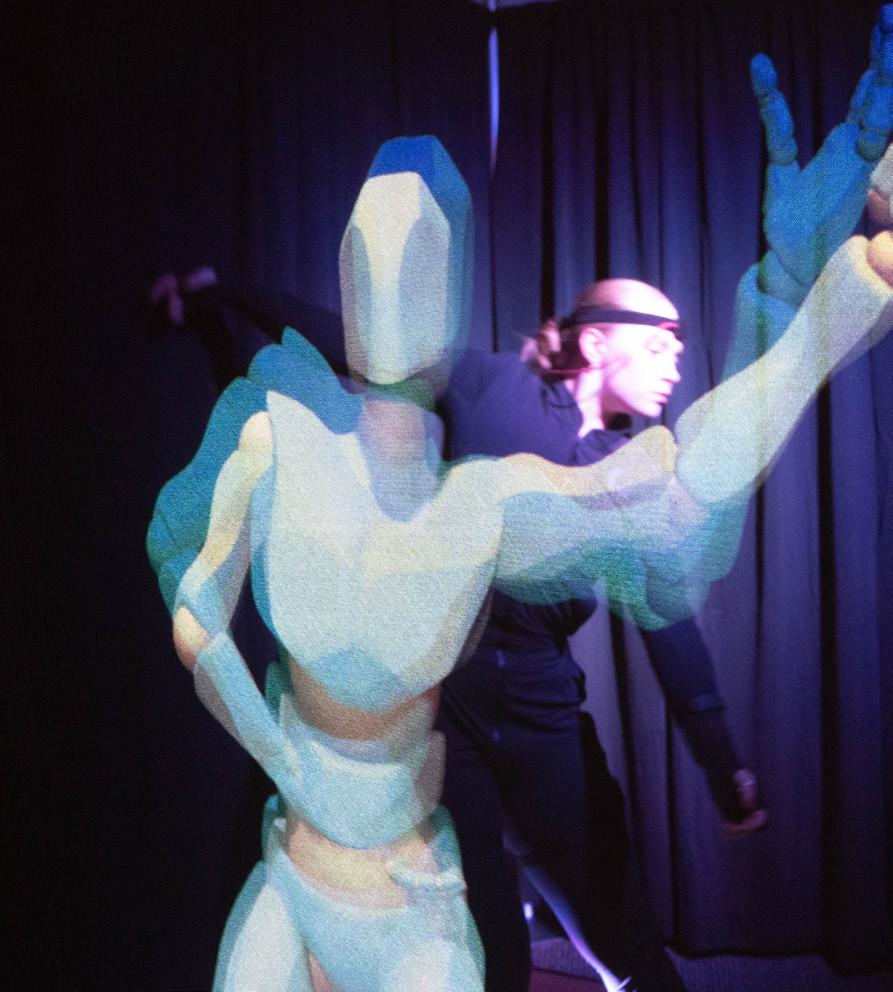



iac.gatech.edu
For details on Georgia Tech’s strategic plan, visit strategicplan.gatech.edu